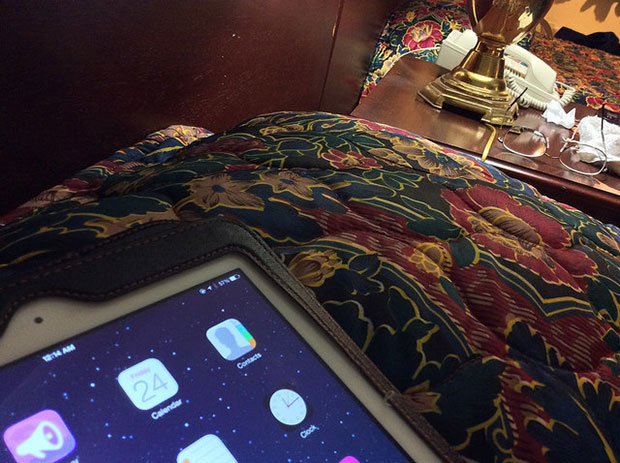Reading From Your Tablet In Bed Is Really Screwing Up Your Sleep Cycle
It's quite tempting to catch up on sports scores or scroll through your Facebook feed while nestled in your cozy bed with your tablet of choice. However, according to a new study, reading from a light-emitting device before drifting off to sleep can shift your body's natural clock and delay certain parts of your sleep pattern, leaving you feeling drowsy in the morning.
The study, which was published online in the journal Proceedings of the National Academy of Sciences, examined 12 subjects who checked into the sleep lab at Boston's Brigham and Women's Hospital. Participants stayed for two weeks, during which time each one spent five consecutive evenings reading a book for four hours under reflected light, and five evenings viewing an iPad, also for four hours. Each subject was to be in bed by 10 PM and up at 6 AM.
Researchers drew blood from the participants and found decreased levels of melatonin in those who used an iPad. On the next day, the increase in melatonin occurred an hour and a half later, which indicates a shift in the subject's circadian cycle.
Being sleepy in the morning is one thing, but according to the study, a link has been shown between long-term suppression of melatonin by nighttime light exposure and increased risk of some cancers.
"The use of light-emitting electronic devices for reading, communication, and entertainment has greatly increased recently," the study said. "Overall, we found that the use of portable light-emitting devices immediately before bedtime has biological effects that may perpetuate sleep deficiency and disrupt circadian rhythms, both of which can have adverse impacts on performance, health, and safety."
Much ado about nothing? Not according to the researchers behind the study, who warn that the effects they measured in the lab could actually be understating the real world impact.


